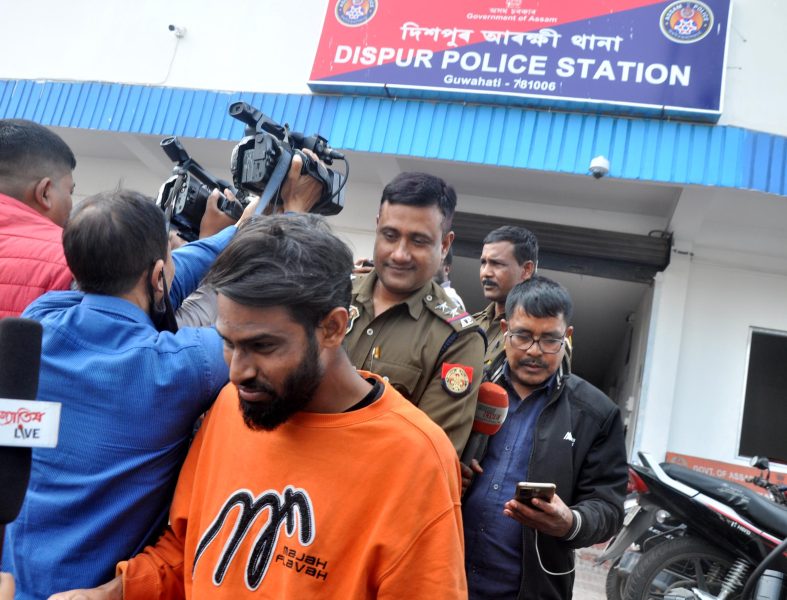
Child marriages: Assam crackdown attacks the symptom, ignores the problem
Instead of trying to address the complex nature of the problem, the Assam government has shifted the blame squarely on individuals involved in child marriage

The genesis of the Assam government’s ongoing crackdown against child marriage lies in a few important reports released last year that mapped the social progress of the states in India.
The report of the National Family Health Survey (NFHS-5) for 2019-21, released in September 2022. revealed that around 32 per cent women in the age group of 20-24 in Assam got married before 18 years, the legal age of marriage. This is much higher than the national average of around 23 per cent.
Around 12 in every 100 child brides were mothers or pregnant during the survey period, the report added. This is again below the national average of around seven per cent.
Also read: Assam child marriages: Social reform, not police action, is the way out
Low social indicators
The maternal mortality rate (MMR) and infant mortality rate (IMR) in Assam too are higher than the national average, according to the Sample Registration System (SRS) Statistical Report for 2020, released by the Registrar General of India (RGI) in September last year.
The state’s MMR of 195 cases out of one lakh live births is the highest in the country, suddenly not a very good advertisement for the state’s all-powerful chief minister, who had been the state’s health minister for 15 years on the trot — from 2006 to 2021 under the Congress government and 2016 to 2021under the Sarbananda Sonowal-led BJP regime.
According to a report of the National Health Mission, there were 4,909-child deaths and 386-maternal deaths in Assam during April to December 2022.
If those were not damning enough for the state government, the Social Progress Index of India released in December last year put Assam among the worst performing states along with Bihar and Jharkhand, the only two other states that found mention in the category of “very low social progress” in the report.
Contributing factors
It is an established fact that social insecurity, poverty, lack of education or, in short, low social progress largely contribute to child marriages, which in turn lead to higher infant and maternal mortality rates.
Assam-specific factors such as frequent natural disasters, civil strife and varying institutional governance arrangements (six districts are administered by autonomous councils) further accentuated the problem in the state.
Instead of trying to address the complex nature of the problem, the Assam government has shifted the blame squarely on individuals involved in child marriage.
Also read: Assam: Families blame erroneous data for child marriage arrests
Following a state cabinet’s directive, the Assam Police launched a massive state-wide crackdown against ‘child marriage’ in a bid to tackle a social issue with harsh policing measures, a move that has only reinforced the opposition’s claim that Assam is increasingly becoming a police state.
Use of police
The Assam Police in recent past courted controversies for razing with “bulldozer” five houses of villagers accused of setting a police station on fire in Nagaon district; evicting many victims of river erosions from government land in the name of clearing encroachment, among others. More than 170 incidents of police firing against alleged criminals since May 2021 are also under court scanner.
“There is a clear pattern in the state government’s growing dependency on police in every aspect of governance. These are just attempts to cover up its abysmal performance in socio-economic spheres and to divert people’s attention from burning issues by creating an illusion of strong governance,” said Assam Congress spokesperson Apurba Kumar Bhattacharjee.
The Assam government is nonchalant to the criticism because its muscle-flexing is getting resounding support from the BJP’s core Hindutva group since the minorities are mostly at the receiving end.
Justifying his government’s ongoing crackdown, Sarma said the drive would continue till the 2026 assembly elections.
Legal implications
Legal experts say it would be easier said than done to continue the drive for long because it would be untenable in the court of law.
“Firstly, the police actions are arbitrary because these marriages are not yet declared null and void by the court. Under the Child Marriage Act, the person who is married before the specified legal age needs to apply for nullity of the marriage. The petition also must be filed within two years of attaining majority,” pointed out senior Guwahati-based advocate Hafiz Rashid Ahmed Chowdhury.
“In the present cases, no complaints were filed and people were leading happy married life until the police crackdown,” he added. Charges slapped against some accused under the Protection of Children from Sexual Offences (POCSO) Act again are arbitrary because there was no complaint or FIR.
More importantly, under the provision of the CrPC section 468 in case of offences such as child marriage that draw maximum punishment of two years of rigorous imprisonment, the court cannot take cognizance of the offence after the expiry of limitation period that is two years, Chowdhury explained.
Some precedents
Moreover, under the Muslim Personal Law the marriage of a minor who has attained puberty is considered valid.
The Punjab and Haryana High Court last year held that the marriage of a Muslim girl aged 15 is valid and that such marriages are not void under the Prohibition of Child Marriage Act (PCMA), 2006.
The Muslim personal law Board has now decided to move the Supreme Court against the Assam government’s drive, Chowdhury said.
Also read: They took my husband away: Assam’s child bride recalls crackdown
Apart from likely legal hurdles, the Assam government’s action has also created some administrative problems. Protests have erupted in various places of the states as many families now suddenly found their sole breadwinner behind bars.
The mass arrests have also created a space crunch in some jails, forcing the state government to convert a transit camp in Goalpara and a stadium in Silchar into temporary prisons.


